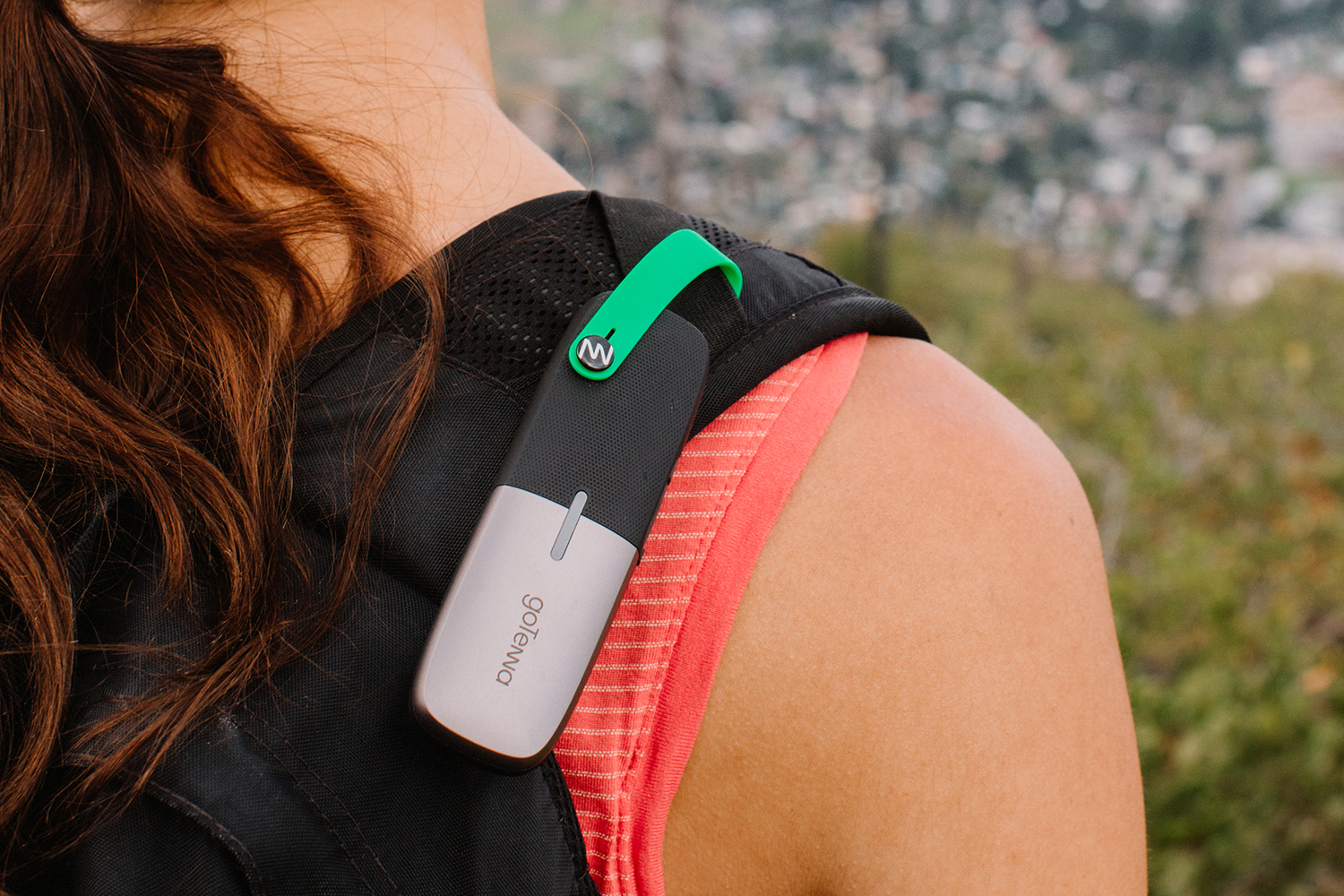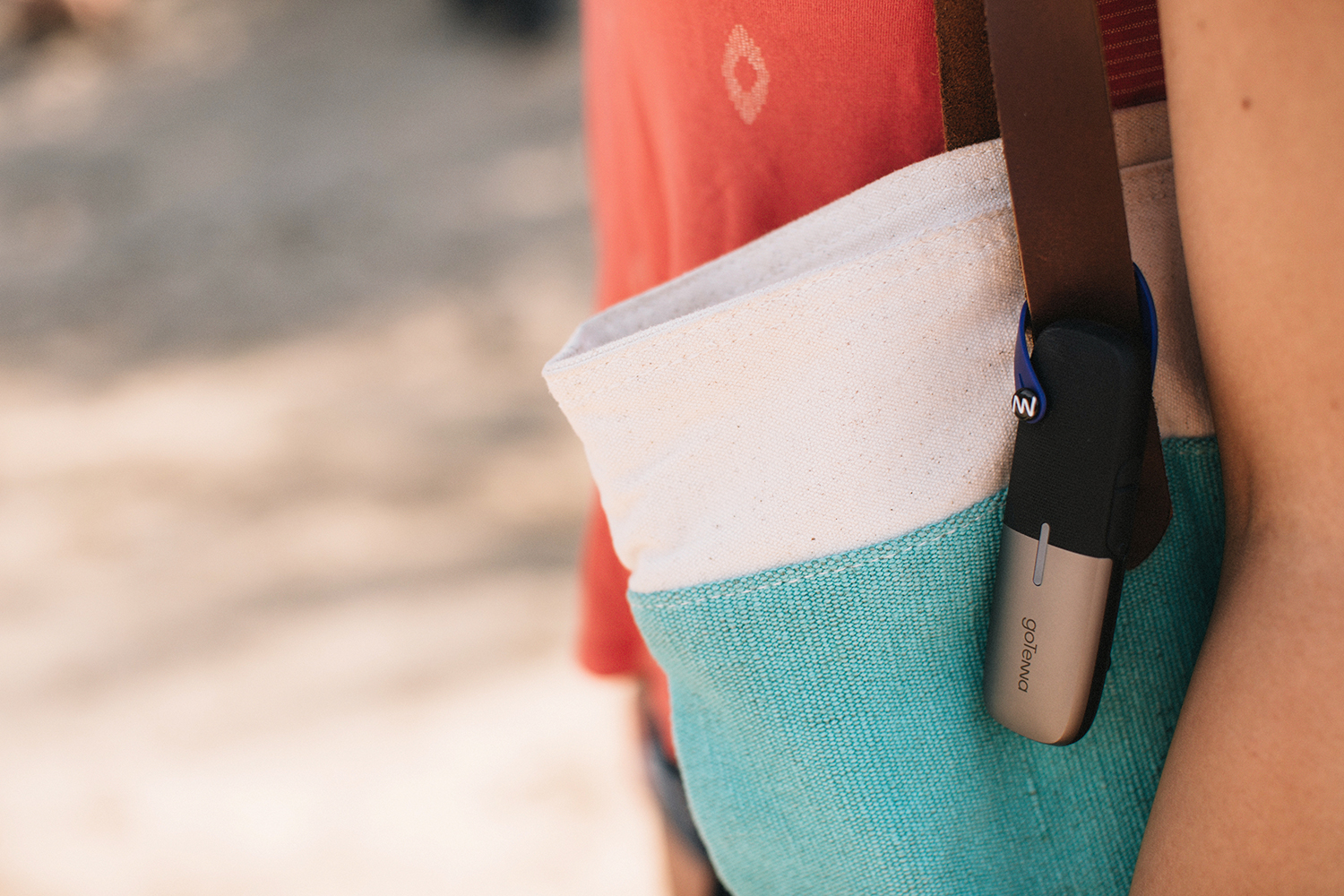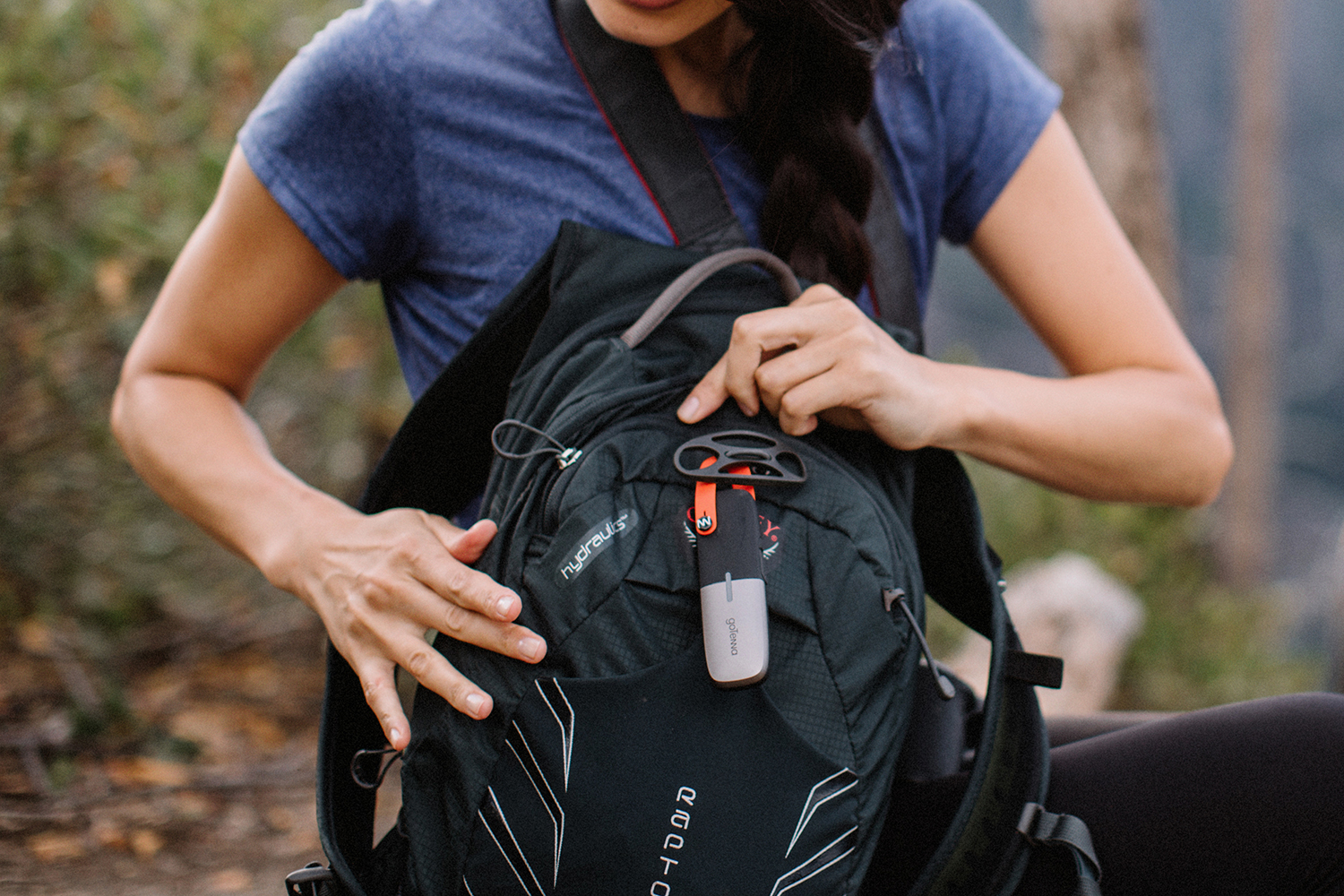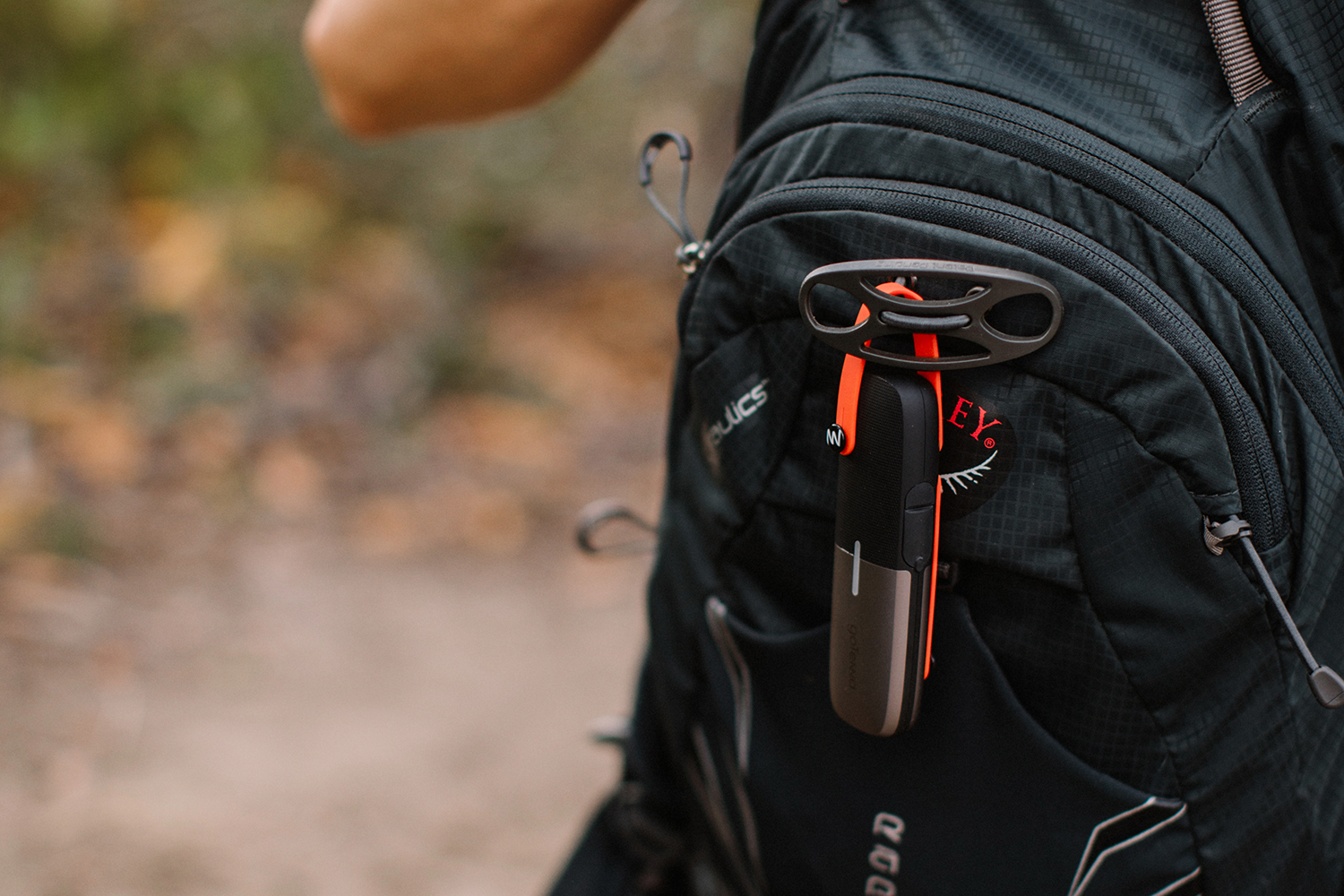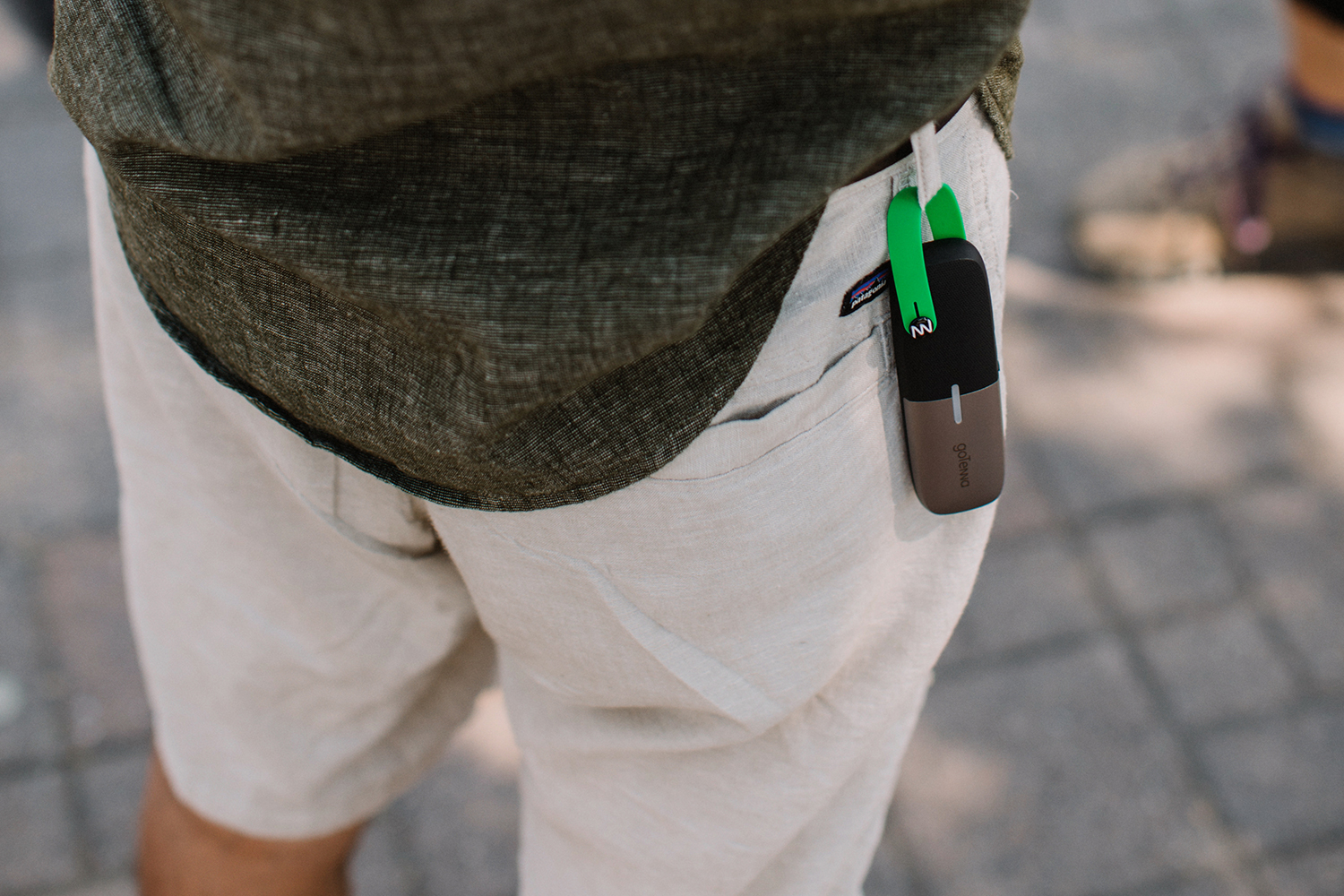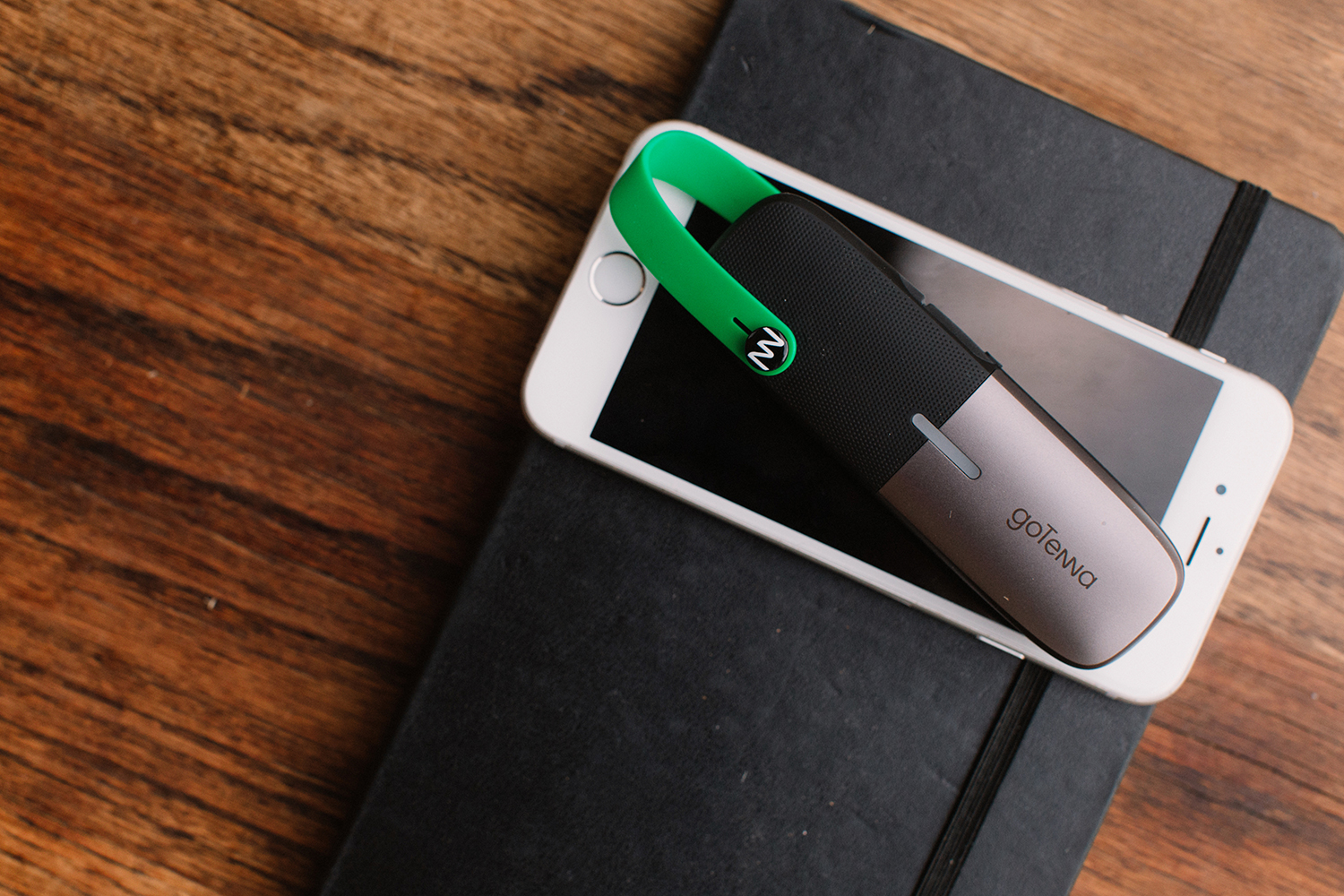Going camping in the woods? Hiking up a mountain? Chances are you won’t have cellular access, and that can be crucial if you’re ever in a pinch. A Brooklyn hardware startup wants to help with mesh networking technology and long-range radio waves.
GoTenna is launching its second product, GoTenna Mesh, on Kickstarter today. The product is a smaller variant of the original GoTenna — both let you send messages via an app and share your location on offline maps without the need for cellular service.
Both devices connect to your Android or iOS smartphone via Bluetooth Low Energy and communicate with each other via radio frequencies. GoTenna Mesh searches for frequencies in the ultrahigh frequency (UHF) spectrum, whereas the original GoTenna uses waves in the very high frequency (VHF) spectrum.
When you’re in an open area without a lot obstructions in the way, like buildings, you’ll be able to communicate with other GoTenna users for several miles. That distance narrows down to about a mile when you’re in an urban environment.
What makes the Mesh unique is its way to get around obstructions via a relay — this requires another GoTenna user, though. If point-to-point messages aren’t sending, Mesh will automatically find the nearest GoTenna device to relay your message to the recipient. The person who is used as a relay will never see the message, and won’t even know his or her GoTenna was used.
The point with GoTenna and Mesh is “people-powered connectivity” — meaning the more people use the device, the better it gets.
You’ll be able to tell when someone has received a message, and the GoTenna app will continue to attempt resending the message until a connection is secured. All messages are also end-to-end encrypted and aren’t stored anywhere, meaning no one but the recipient has access to what you send.
But GoTenna isn’t solely meant to be used for outdoor folks. The company was established after the founders, Daniela and Jorge Perdomo, had trouble communicating with people when Hurricane Sandy knocked out cell towers in the greater New York area.
That’s where one of the features, “Shout,” would come in handy — it lets users broadcast to all nearby GoTennas, for fun or to send important alerts during emergencies.
Along with releasing a software development kit for developers, the Brooklyn company has unveiled GoTenna Plus, a $29 yearly subscription that offers access to “to detailed topographic maps, trip statistics, network relays into traditional SMS, automated location tracking and sharing for trusted contacts, and group delivery confirmation receipts.” The subscription costs $1o a year for the first year.
The GoTenna Mesh is sold in pairs and costs $179, but you can pre-order a kit for $129 on Kickstarter. Devices will begin shipping later this year, and it’s the company’s first device that will be sold outside the U.S. GoTenna has dropped the price of its first product to $149 for a pair.
A portion of the funds raised on Kickstarter will be donated to Telecom Without Borders, a nonprofit that sets up “humanitarian communications operations in crises and disasters.”




